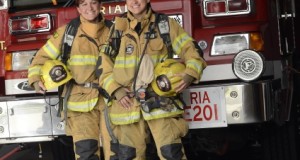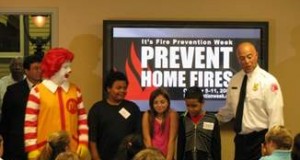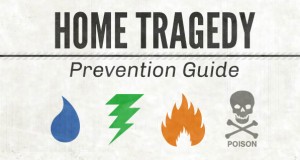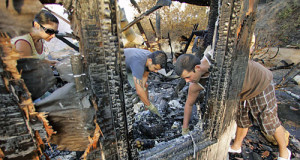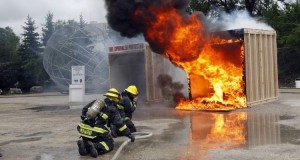If we truly want to eradicate preventable fires, we must start by using language that clearly identifies the responsible party; it’s not the fire, it’s the person whose improper behavior created the conditions that enabled the fire to start.
Read More »Tag Archives: fire prevention
Fire and Life Safety Education Needs Social Entrepreneurs
Social entrepreneurship is about starting local movements that grow exponentially to solve massive social problems. Fire deaths and accidents are preventable, and yet they claim far too many lives each year. In 2016 there were almost half a million burn injuries in the U.S. and almost three thousand fatalities due to preventable home fires. The fact that so many of these could be avoided with fire and life safety education is stunning. And a prime example of a “massive social problem” that lends itself to a social entrepreneurship solution.
Read More »What They Don’t Know, But We Do
We're not "carrying the day" with effective public fire and life safety programs that provide the factual information about residential fire sprinklers. We're allowing the builders and developers to promulgate the "half-truths" and myths.
Read More »Let’s Use Social Media to Promote Successes!
Fire departments should make greater use of social media to promote the success of fire and life safety education efforts such as when the residents of a home fire safely escape because they had working smoke detectors and a Home Fire Escape Plan that they had practiced.
Read More »Residential Fire Sprinklers: The Power of Words
We’ve got to stop ignoring the “elephant in the room” when it comes to fires in the United States, particularly in residential properties: we live in a culture that accepts that fires happen, fires kill and injure people, and fires destroy property.
Read More »A New Stop Fires Paradigm
Why do we keep building homes and installing appliances and furnishings that don't keep fires from starting and spreading? A new stop fires paradigm is needed to eliminate preventable fires in the USA. We've made safer cars for years, why not safer homes?
Read More »Fire Prevention and Suppression: The Fire Service’s Identity Crisis
Driving a car once was an extremely dangerous activity for the average person (and it still is for people that don’t give it their full attention). In the United States, we’ve made significant reductions in the mortality and morbidity statistics associated with motor vehicle crashes and we’ve done it through education, engineering, and enforcement. We’re far past the time when we need to put more of our energies and efforts into those “3-E’s”—way more!—when it comes to eliminating preventable fires in our communities.
Read More »Fire + No Working Smoke Alarm in Your Home = You’ll Die
It’s time we in the fire service quit being so polite to people about the deadly threat that fire poses to them, their families, and their communities. It’s time to stop “suggesting” that it’s a good idea to have a working smoke detector on every level of their home. Time to stop “making excuses” for the dead following a preventable fire where no working smoke detectors were present. And it’s time to stop making excuses for parents who manage to get out of a burning home, but their children do not because the parents never had or practiced a Home Fire Escape Plan with their children.
Read More »America’s Continued Addiction to Fire Suppression
Sound rather harsh? Sound unrealistic? So does closing fire stations and laying off firefighters. So does continuing to expose firefighters to increasing levels of risk of injury or death because of negligence on the part of building occupants, developers, and builders. So does continuing to increase the fiscal burden to local taxpayers to pay for an antiquated fire protection model that is reactive rather than proactive. Fire service leaders keep saying that we need to "think outside of the box" and make better use of technology, but more increasingly expensive technology that supports the "wrong" model is not the answer. I believe that the only way to change the outcome is to change the culture.
Read More »The Multi-Hazard Fire Department
The fire service needs to market its service as an insurance company does. The fire service provides services to its community that one never wants to call on, like insurance, but can't afford to be without when needed, also like insurance. This is not marketed enough. How many of people live without several insurance policies, e.g., life, health, auto, etc.? None. Yet fire departments in communities across the country are facing dire straits because of lack of citizen support in the voting booth or at fundraising time.
Read More » Fire & EMS Leader Pro The job of old firefighters is to teach young firefighters how to become old firefighters!
Fire & EMS Leader Pro The job of old firefighters is to teach young firefighters how to become old firefighters!


